The demand for sustainable solutions in various industries has prompted a reevaluation of traditional manufacturing methods, particularly in the realm of container fabrication. As the global population continues to rise, the Environmental Protection Agency (EPA) reported a staggering increase in waste generation, with more than 292 million tons produced in the United States alone in 2018. This scenario underscores the urgent need for innovative approaches to container production that minimize environmental impact while maximizing resource efficiency.
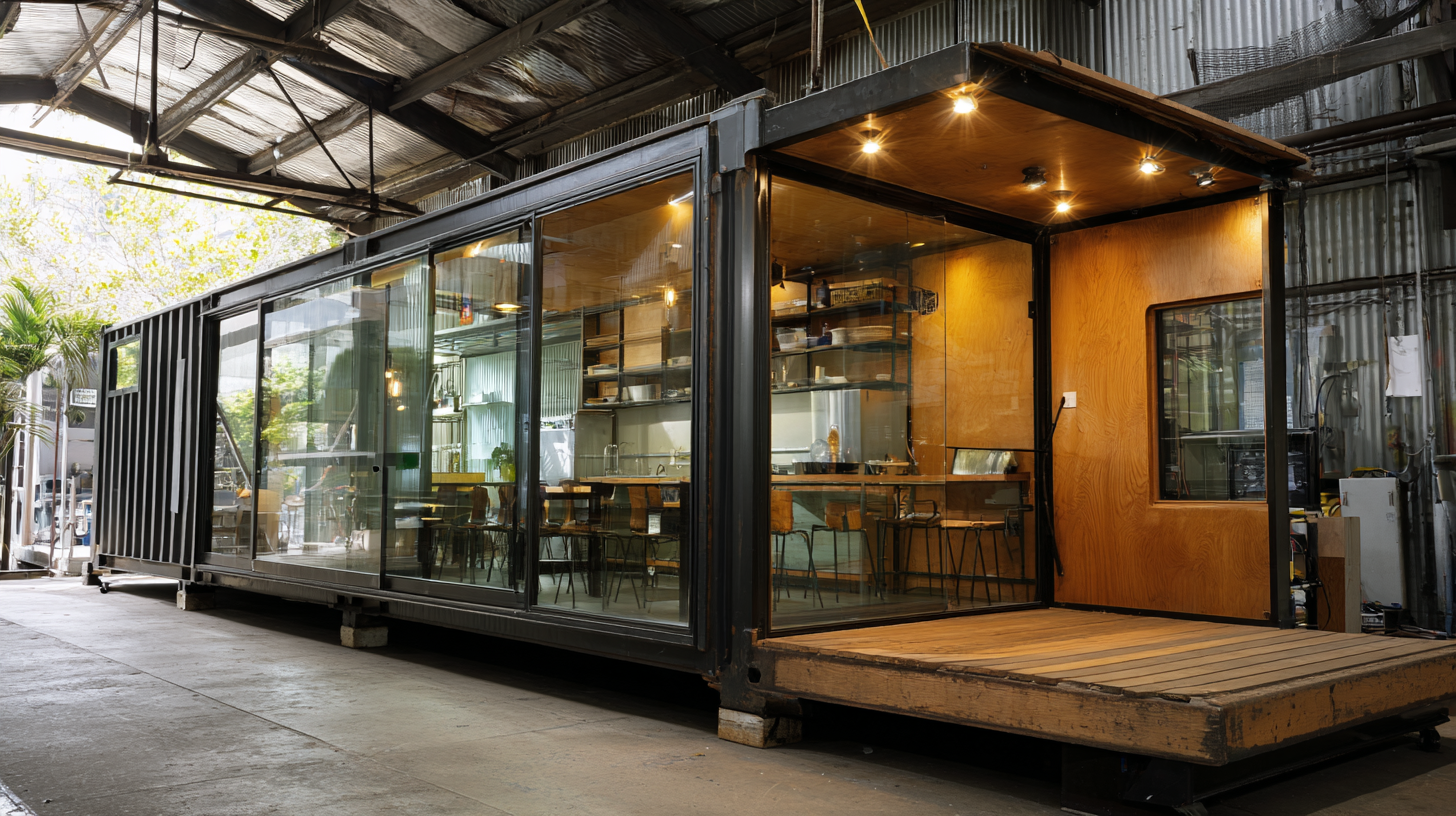
In the context of container fabrication, recent advancements are focusing on integrating digital technologies, which have been shown to enhance production processes significantly. According to a report by McKinsey & Company, adopting Industry 4.0 technologies can lead to productivity improvements of up to 30% in manufacturing sectors. Techniques such as 3D printing, modular construction, and the use of biodegradable materials are paving the way for sustainable container solutions that not only meet regulatory standards but also align with consumer preferences for eco-friendly products.
By exploring these innovative container fabrication techniques, industries can contribute to a circular economy that reduces waste, conserves resources, and promotes sustainability. The shift towards these advanced methodologies not only addresses environmental challenges but also opens new avenues for economic growth and enhanced competitiveness in a rapidly changing marketplace.
The emphasis on innovative materials for container fabrication is becoming increasingly vital in the quest for sustainability. Industries are beginning to explore alternatives to traditional packaging materials, such as biodegradable plastics, which are projected to see significant growth, expanding from $9.5 billion in 2024 to $32.61 billion by 2031. This shift not only reduces environmental impact but also aligns with consumer preferences for sustainable products.
Tips for implementing sustainable container solutions include actively seeking out materials like carbon nanotubes and biodegradable plastics due to their lightweight and eco-friendly properties. Furthermore, companies should collaborate with local startups that offer innovative recycling solutions, enhancing the overall lifecycle of their products. For example, initiatives in places like Buenos Aires aim to connect residents with recyclers, promoting responsible disposal practices.
As countries like Belgium launch large-scale mushroom-based packaging factories, it's clear that the momentum for sustainable packaging is building. By adopting pioneering approaches, businesses can significantly mitigate their ecological footprint while appealing to environmentally-conscious consumers. Embracing such innovative fabrication techniques can pave the way for a more sustainable future in container production.
| Material Type | Properties | Sustainability Impact | Applications |
|---|---|---|---|
| Recycled Plastics | Durable, lightweight, corrosion-resistant | Reduces landfill waste, lowers carbon footprint | Container fabrication, automotive parts |
| Biodegradable Composites | Eco-friendly, compostable, versatile | Minimizes plastic pollution, promotes circular economy | Food packaging, single-use containers |
| Bamboo Fiber | Strong, lightweight, natural aesthetic | Sustainable sourcing, fast-growing resource | Consumer goods, packaging solutions |
| Mycelium | Biodegradable, low energy input | Fully compostable, reduces waste | Packaging, construction materials |
| Hemp | Strong, moisture-resistant, natural | Reduces dependence on wood, minimal agrochemical use | Building materials, textiles, biodegradable containers |
The integration of 3D printing into container manufacturing practices marks a significant shift towards sustainability and innovation. By enabling the production of complex geometries and reducing material waste, additive manufacturing not only streamlines the fabrication process but also supports eco-friendly initiatives. This methodology offers manufacturers the flexibility to design and produce containers tailored to specific requirements, which can lead to enhanced efficiency and lower production costs.
In various industries, including food packaging and pharmaceuticals, 3D printing has begun to set benchmarks for improving functionality and responsiveness to market demands. The adaptability of this technology allows for rapid prototyping and customization, fostering an environment where companies can innovate without the limitations of traditional manufacturing methods. As 3D printing continues to revolutionize container manufacturing, it paves the way for more sustainable practices that align with global efforts to reduce environmental impact while meeting the evolving needs of consumers.
This bar chart illustrates the adoption rate of various fabrication techniques for container manufacturing over the past five years, highlighting the growing role of 3D printing.
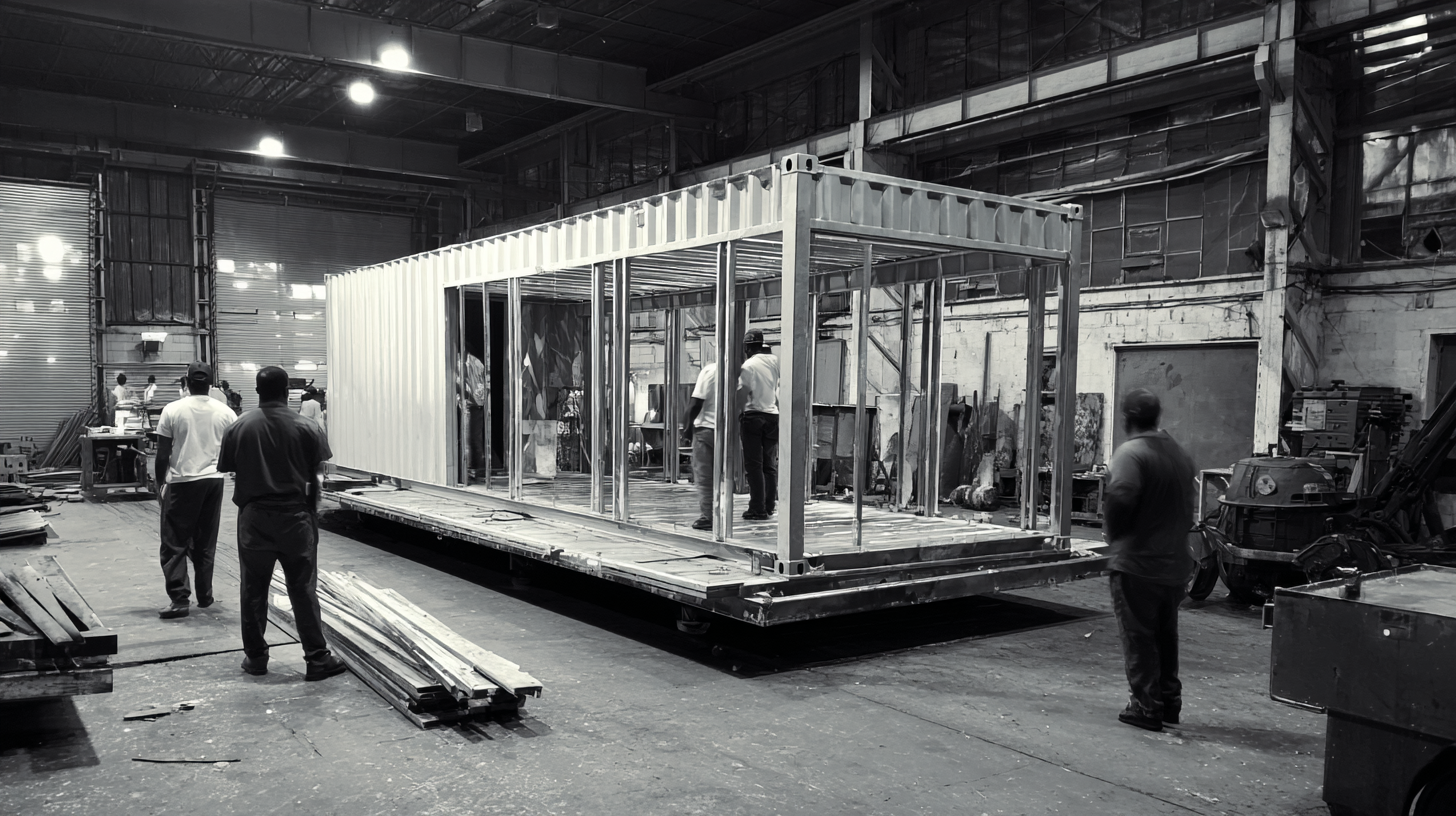 The rise of environmental consciousness has driven the need for
innovative container fabrication techniques that prioritize sustainability.
Biodegradable and recyclable materials emerge as leading solutions that can significantly reduce
environmental footprints. By utilizing plant-based polymers and
natural fibers, manufacturers are not just cutting down on plastic waste but also contributing
to a circular economy where containers can be repurposed
or safely broken down after use. This shift in material selection is essential for the food, beverage,
and consumer goods industries, where packaging plays a crucial role in product presentation and preservation.
The rise of environmental consciousness has driven the need for
innovative container fabrication techniques that prioritize sustainability.
Biodegradable and recyclable materials emerge as leading solutions that can significantly reduce
environmental footprints. By utilizing plant-based polymers and
natural fibers, manufacturers are not just cutting down on plastic waste but also contributing
to a circular economy where containers can be repurposed
or safely broken down after use. This shift in material selection is essential for the food, beverage,
and consumer goods industries, where packaging plays a crucial role in product presentation and preservation.
Moreover, advancements in design technology allow for the integration of these sustainable materials into aesthetically pleasing and functional containers. Research into eco-friendly coatings and adhesives enhances container durability while ensuring biodegradability. As brands increasingly adopt these sustainable practices, they not only comply with regulatory changes but also resonate with consumers who prioritize eco-conscious choices. This transformative approach in container design signifies a broader commitment to sustainability, fostering a culture of innovation that aligns economic activities with environmental stewardship.
The production of containers plays a significant role in various industries, and as environmental concerns escalate, it becomes crucial to adopt energy-efficient processes. By optimizing manufacturing techniques, companies can significantly reduce energy consumption, leading to a lower carbon footprint. Innovative approaches such as using renewable energy sources and implementing advanced technologies like automation and robotics can drastically streamline production lines and minimize waste. These initiatives not only contribute to environmental sustainability but can also enhance the overall efficiency of container production.
Moreover, the development of eco-friendly materials is an essential avenue in reducing the environmental impact of container production. Utilizing recycled materials or biodegradable options can lead to a substantial decrease in resource extraction and pollution. Research into alternative raw materials that require less energy to process is also gaining traction. Emphasizing closed-loop systems, where materials are continuously reused and recycled, not only diminishes waste but also promotes a circular economy within the container manufacturing sector. Ultimately, these innovative strategies represent a vital step toward achieving sustainable solutions in container fabrication.
In the pursuit of sustainable container solutions, collaboration across industries is becoming increasingly critical. Recent initiatives highlight the power of partnerships in fostering a circular economy. For instance, organizations are leveraging cross-sector collaborations to enhance research and development, leading to innovative packaging practices that not only meet consumer demands but also contribute to environmental sustainability. By engaging in collaborative governance, private investments are being unlocked to support environmentally sustainable projects, demonstrating the vital role of joint efforts in addressing sustainability challenges.
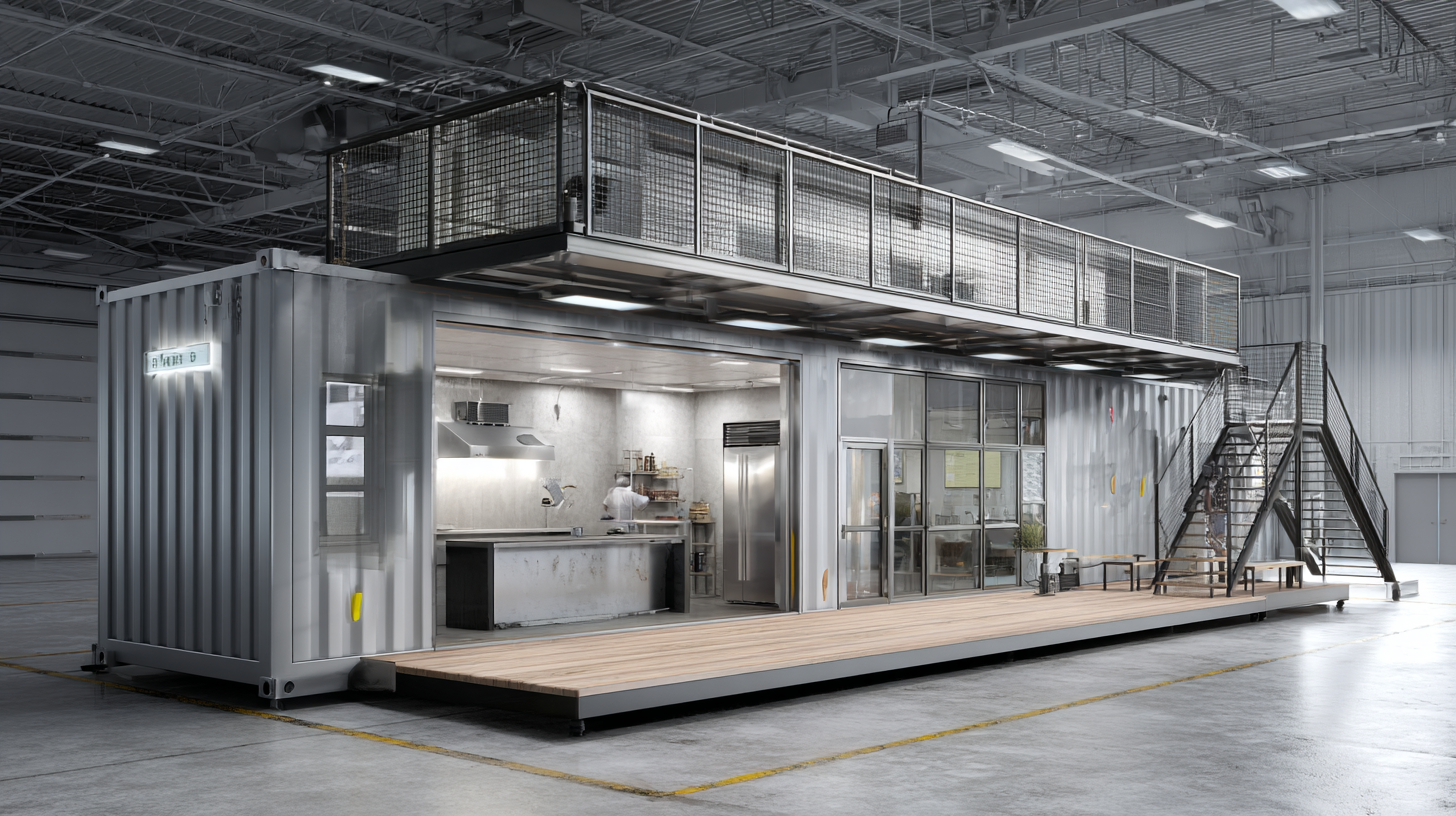
Moreover, the establishment of dedicated centers focused on end-of-life solutions for packaging illustrates a proactive approach to sustainability in the packaging industry. These centers bring together academic research and industry expertise to develop actionable strategies for recyclability and waste reduction. Such partnerships signal a growing acknowledgment that collective action is essential for driving systemic change in the packaging ecosystem. By working together, businesses can create effective solutions that mitigate their environmental impact while promoting sustainable practices across the supply chain.
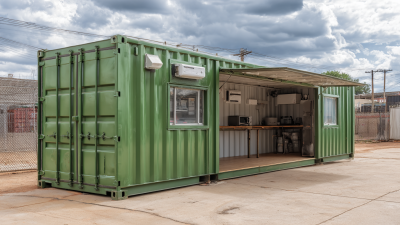
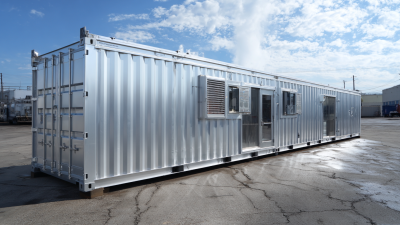
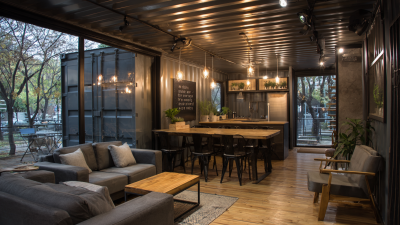

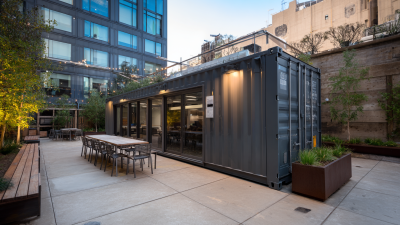
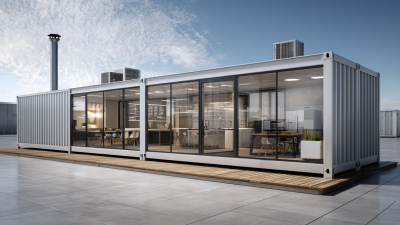
Subscribe to our newsletter for the latest news and exclusive offers.
We hold a long-term view when we build modular rooms taking into consideration your changing needs. Whether it’s shifting your workspace to a new site, redesigning your unit to fit new requirements, or simply clearing the area at the end of the project, our Dismantling & Reassembling teams are pressed into service to get the job done in the quickest possible time and minimum resource wastage.
We understand that every project is unique and therefore has a different set of requirements. That’s why we believe in customizing our solutions to fit individual needs. We are equipped with the right talents, technology, and skillset to offer bespoke modular units, without compromising on turnaround time or quality.
The benefits of choosing Containers ME continues long after the installation of the units as we provide aftersales service for as long as you need. All you have to do is sign the Annual Maintenance Contract (AMC) and enjoy technical support for all the maintenance-related issues. By signing the contract, you can rest assured that a highly professional team of dedicated staff are at your service all year round to attend to your needs.
We specialize in Customized Container Solutions designed to meet diverse needs across the UAE. Our offerings include customized modular containers that cater to various applications, from tailor-made container solutions to bespoke container designs.
Whether you’re looking for personalized container homes or custom modular containers, we have you covered. Our customized container offices provide functional workspaces, while our customized portable containers ensure flexibility on-site. Explore our range of custom container storage units and customized cargo containers to optimize your space.
We also offer custom container leasing and custom container fabrication services, along with customized sea containers designed for secure transport. For specialized needs, our specialized container modifications will help you create the perfect solution for your requirements in both Dubai and the broader UAE.
